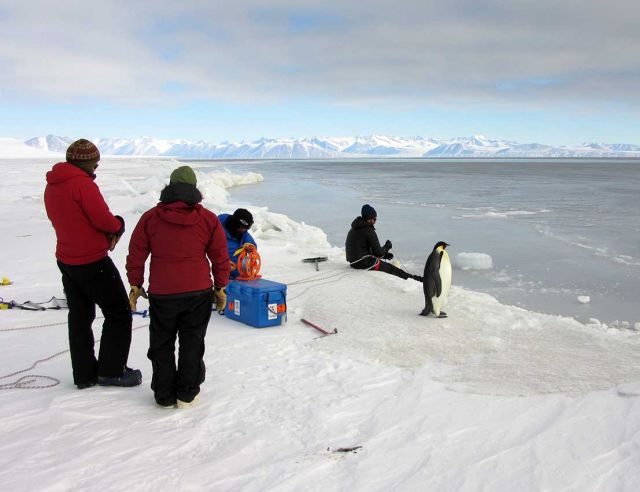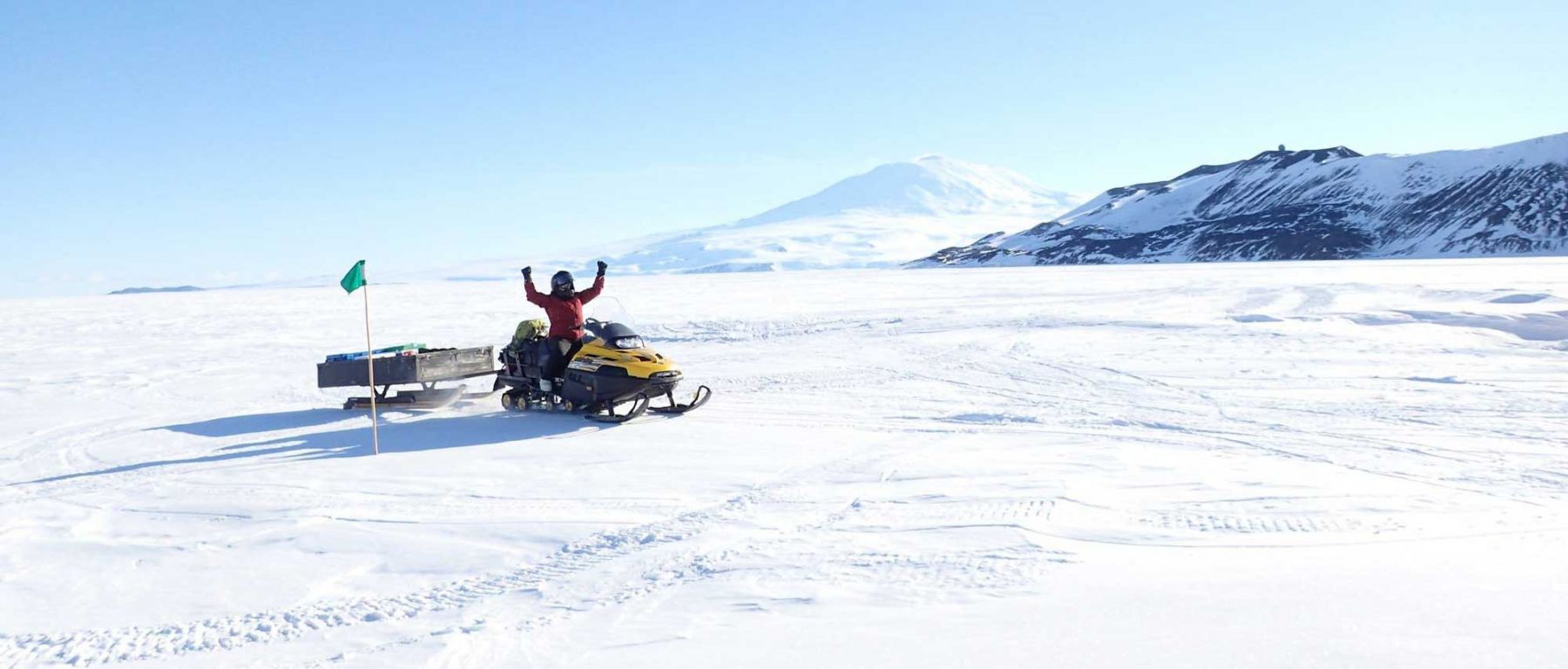Overview
The Hofmann lab has been conducting research at McMurdo Station Antarctica since 2001. The first generation of B-134 studied the thermal physiology and cold adaptation of Antarctic fish. Currently, the lab is focused on the impacts of ocean acidification on calcification-dependent marine invertebrates while framing the experiments with oceanographic sensor data. Our study organisms are the pteropod, Limacina helicina antarctica, and the sea urchin Sterechinus neumayeri. Our most recent work is to explore the connection of DNA methylation to changes in gene expression in pteropods.

Research Highlight
Research on Antarctic pteropods was conducted in McMurdo Station Antarctica, the US research based on Ross Island. In addition to experiments conducted in the Crary laboratories, the team collected pteropods in local study sites, including here at the ice edge near McMurdo Station (add the ice edge image here!). Our work here has focused on the physiological response to changes in pCO2 conditions, and we have conducted several studies to examine the transcriptomic response to pteropods. This early work has inspired further studies to explore how epigenetic mechanisms might transduce changes in the physical environment to changes in the transcriptome. Our most recent publication here highlights how genome-wide methylation links to gene expression, and this work continues with a new award from the Office of Polar Programs. We are excited to extend the Bravo 134 research tradition as we explore mechanisms in Antarctic organisms in a climate change physiology context.
Affiliated Researchers
Selected Publications
Bogan, S.N., K.M. Johnson and G.E. Hofmann (2020) Changes in Genome-wide Methylation and Gene Expression in Response to Future pCO2 Extremes in the Antarctic Pteropod Limacina helicina antarctica. Frontiers in Marine Science 6: doi: 10.3389/fmars.2019.00788
Johnson, K.M. and G.E. Hofmann (2020) Combined stress of ocean acidification and warming influence survival and drives differential gene expression patterns in the Antarctic pteropod Limacina helicina antarctica. Conservation Physiology (in press) doi: 10.1093/conphys/coaa013
Johnson, K.M., J.M. Wong, U. Hoshijima, C.S. Sugano, and G.E. Hofmann (2018). Seasonal transcriptomes of the Antarctic pteropod, Limacina helicina antarctica. Marine Environmental Research 143: 49-59.
Johnson, K.M. and G.E. Hofmann (2017) Transcriptomic response to ocean acidification in the Antarctic pteropod Limacina helicina antarctica. BMC Genomics 18:812.
